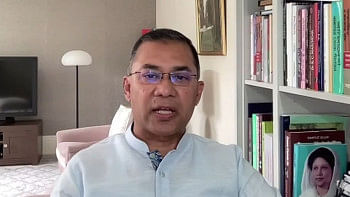Govt's bank borrowing rises sharply in July-April

The government's borrowing from commercial banks in the first ten months of the current fiscal year jumped 12 times compared to the same period a year ago as the Bangladesh Bank is no longer directly lending to the government due to inflationary pressure.
From last July to April 22 this year, government loans from commercial banks amounted to Tk 65,432 crore, according to Bangladesh Bank.
In the same 10 months or so of fiscal year 2022-23, it was only Tk 5,334 crore.
When it comes to such dealings with the central bank, the government repaid Tk 19,875 crore in the last 10 months as opposed to its usual trend of borrowing.
In the same 10-month period of the preceding fiscal year, the government had borrowed Tk 72,904 crore from the central bank. And by the end of fiscal year 2022-23, the government had taken a record Tk 98,000 crore in total.
Such a large amount of loans from the central bank had drawn criticism from the country's economists, who believed it would fuel inflation.
Bangladesh is already witnessing record inflation. Since March last year, inflation has stayed at over 9 percent, which prompted the central bank to suspend the printing and injection of money into the economy.
From July to April 22 of fiscal year 2023-24, net bank borrowing, meaning the amount taken from banks subtracted by that repaid to Bangladesh Bank, stood at Tk 45,557 crore, which is 34.40 percent of the total target for the current fiscal year.
It was Tk 78,237 crore in the same period of the last fiscal year.
The government had set a target of borrowing Tk 132,395 crore from the banking sector in fiscal year 2023-24 to meet the deficit budget.
The government also targeted to borrow Tk 23,000 crore from the non-banking sector.
A senior official of the central bank told The Daily Star that the government depended fully on commercial banks for borrowing as the central bank had suspended providing fresh funds due to inflationary pressure.
He said a record increase in the yields of government treasury bills and bonds prompted commercial banks to invest in those instead of lending to the private sector.
The yield of all genres of treasury bills has gone past 11 percent.
The yield of the 91-day bill stands at 11.35 percent, 182-day bills at 11.40 percent and the 364-day bills at 11.60 percent.
They were 6.95 percent, 7.25 percent and 8.30 percent respectively in June last year.
The government has been borrowing from the commercial banks instead of the central bank since this fiscal year, which is not bad, said Ahsan H Mansur, executive director of the Policy Research Institute of Bangladesh.
If the government had continued to borrow from the central bank, inflation would have been fuelled further, he opined.
He said the government's borrowing from banks would increase in the remaining two months of this fiscal year as government expenditure generally increases in the May-June period.
The government interest payments will also increase while another problem with high bank borrowing is that loans to the private sector shrink, he pointed out.

 For all latest news, follow The Daily Star's Google News channel.
For all latest news, follow The Daily Star's Google News channel. 




Comments